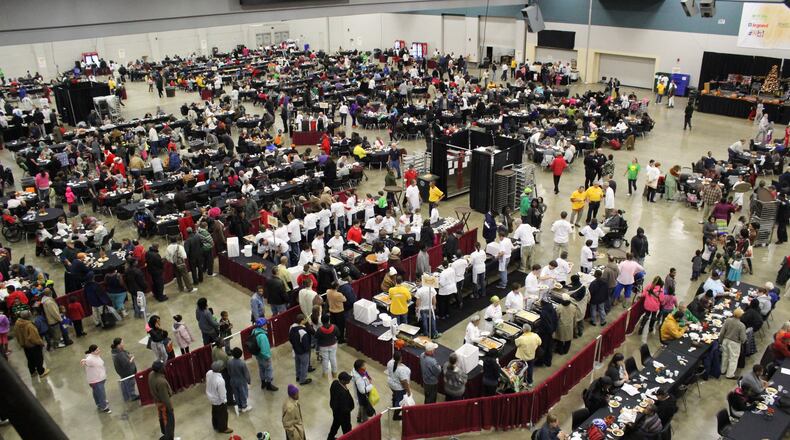A 3 percent lodging tax increase could bring in another $3 million a year to pay for improvements, according to the report.
Dayton Mayor Nan Whaley said the city is “looking for a partner” to help pull the facility out of the red, and the task force called on Montgomery County to fill that role. But it’s unclear whether the two will forge such a partnership, though officials for both governments insist the convention center is a community asset worthy of renewed investment.
Any increase in the hotel/motel tax requires action by state legislators and the approval of the Montgomery County Commission. The county does not provide direct financial support to the convention center, but sends the bulk of its lodging tax share to the Dayton Convention & Visitor’s Bureau. The additional 3 percent tax would have to be levied by the county, which currently has a 3 percent lodging tax. Most other local government, including Dayton, also have a 3 percent tax.
Officials say the convention center is in need of about $15.2 million in upgrades just to keep it competitive with other venues in Ohio.
Michael Colbert, Montgomery County administrator, said the county is willing to collaborate with regional partners but said the issue isn’t the county’s to steer.
“While Montgomery County is always willing to discuss policy changes, we believe that any effort to increase the lodging tax should be driven by our local business leaders and hoteliers,” Colbert said.
If the rate rises as the task force recommends, the total lodging tax would increase to 9 percent throughout most of Montgomery County. Most hotel stays within Dayton’s city limits are currently taxed at 6 percent — half of which goes directly to the convention center. The task force recommends that all new hotel tax revenue put into the convention center.
Jacquelyn Powell, president and CEO of the Dayton Convention & Visitors Bureau and a member of the task force, said the group looked at a multitude of options for income, including selling naming rights to the building and sponsorships. While potentially important revenue streams, those and other alternatives would fall short, she said.
“Dayton must remain competitive in order to attract new convention business and retain our current events,” Powell said. “Tax increases are rarely popular.”
The convention center has lost money for years. Expenses exceeded revenues by $204,717 in 2016 and $118,729 in 2017, according to the city.
To keep the facility from sinking further in the red, the city has pitched in money beyond lodging tax revenue. Although the city will continue to direct all of the revenue from its 3 percent hotel/motel tax to the convention center, the subsidy from the city’s general fund will end after 2019, Whaley said.
“No other city in the state does this,” she said. In advocating for partners, she added: “The task force was pretty clear they found it (the center) has value.”
Colbert said county has provided financial support to the convention center in past years to help complete building renovations. He said the more than $2 million the county sends to the Dayton Convention & Visitor’s Bureau — or 75 percent of the county’s hotel/motel tax collected annually — is needed there because without it, “the convention center would not have anyone to solicit tourism, conventions or events.”
Montgomery County commissioners said they need to review the task force’s recommendations and talk to the business community and Dayton officials before making any decisions on whether to seek an increase in the lodging tax.
“I definitely think we need to have a convention center in Dayton and I am looking forward to sitting down with city leadership to discuss next steps,” Montgomery County Commissioner Debbie Lieberman said.
Added County Commissioner Judy Dodge: “I want to get going on this quickly. The commissioners want to get this looked at and studied.”
Lodging taxes are typically capped at 6 percent for any locality, but state law permits counties to raise the tax higher for specified purposes, according to the Ohio Department of Taxation.
Last year, Warren County commissioners agreed to increase the lodging tax from 3 to 4 percent to to pay off $15 million in debt from the Warren County Sports Park at Union Village west of Lebanon. A change in state law allowed commissioners to transfer the property to the Warren County Port Authority and boost taxes.
Clermont, Hamilton, Stark and Summit counties also took advantage of special provisions in the same 2017 Ohio House bill to generate more lodging tax revenue.


